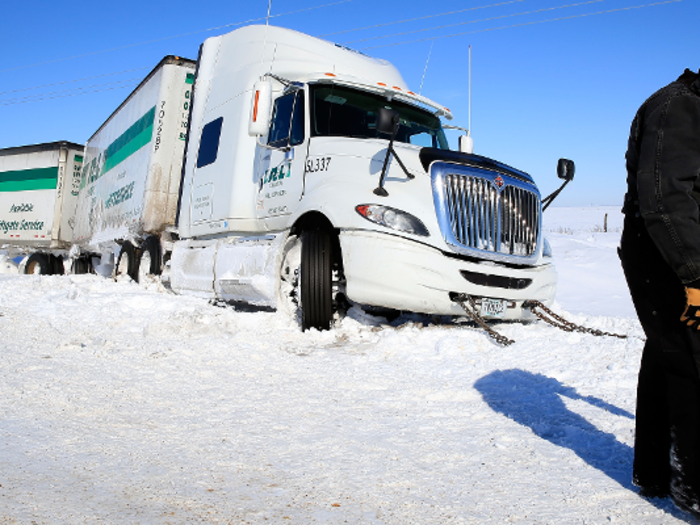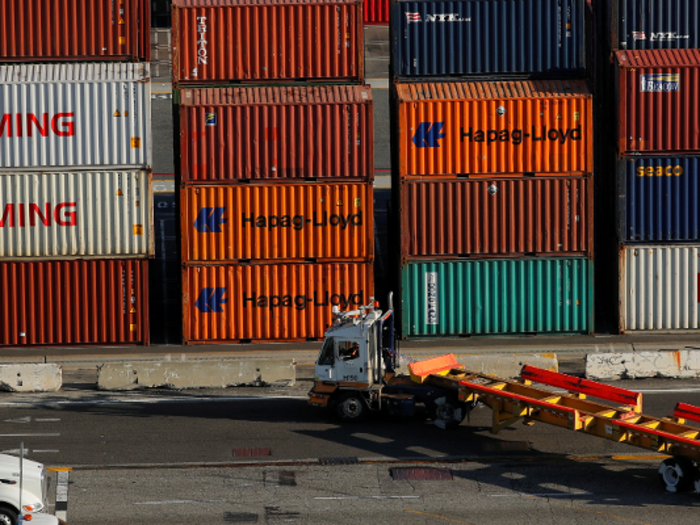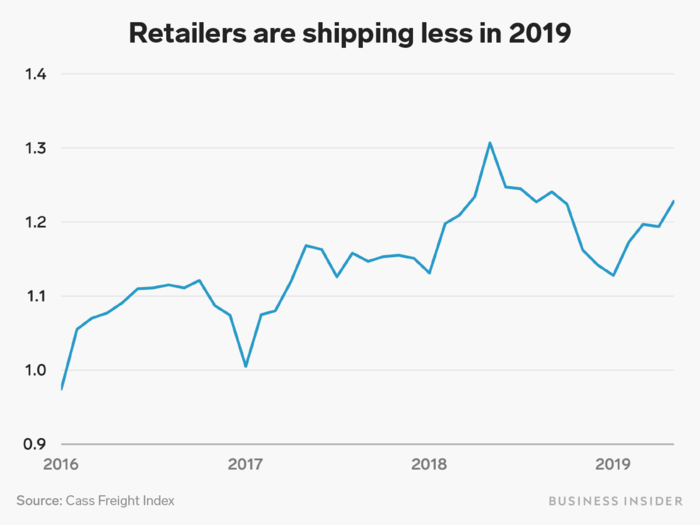- Home
- slideshows
- miscellaneous
- Thousands of truck drivers have lost their jobs this year in the trucking 'bloodbath.' Here's what's behind the slowdown in the $800 billion industry.
Thousands of truck drivers have lost their jobs this year in the trucking 'bloodbath.' Here's what's behind the slowdown in the $800 billion industry.
Trucking is highly cyclical, and we're coming off from a massive uptick in the market

The economy has weakened

Along with there being too many trucks and truckers in the industry now, the economy wasn't as strong in the first half of 2019 as it was last year.
As a result, trucking loads were down 50.3% in June compared with June 2018 in the spot market. Rates also dipped by as much as 18.5% over that same period.
In June, factory activity growth was its slowest since October 2016, according to the Institute for Supply Management. That means manufacturers didn't receive as many orders, and there were fewer things to move.
Growth in consumer spending in the first half of 2019 was down from last year, hitting a trough in April, when sales fell by 0.2%.
But, as of late, a "sharp acceleration" in retail spending is giving rise to rosier outlooks for the rest of 2019. Joseph Brusuelas, the chief economist at RSM US LLP, told The Wall Street Journal this week that the uptick in consumer spending helps offset trade tensions.
"The consumer has a fairly bright outlook at this point, just based on job gains and wage gains," Brusuelas said.
If retail and manufacturing activity indeed upticks in the second half of this year, that will help trucking out of its downturn, too.
The weather in early 2019 was terrible

Mother Nature gets some of the blame.
Peggy Dorf, senior market analyst at DAT Solutions, said the weather in the first half of 2019 was so "dreadful" that it destabilized the trucking industry.
The winter melee in the trucking hub of the Midwest, where cities like Chicago were hit with record-low temperatures and blizzards, froze transportation. J.B. Hunt Chief Financial Officer David Mee told investors that bad weather forced them to cancel loads, while US Xpress CEO Eric Fuller said bad weather hurt the company to a similar degree as the dip in freight volumes.
Every year, bad weather causes 23% of truck delays and costs the industry some $3.5 billion, FreightWaves reported.
"I think the bigger thing in our data is really been the weather patterns affecting those sharpest drops," Mark Montague, the senior industry pricing analyst at DAT Solutions, told Business Insider.
Transportation companies across the board are dealing with tariff 'uncertainty'

Dorf and Montague at DAT said the trade war couldn't be to blame for all of trucking's woes, but it is affecting rates in certain regions.
In April, J.B. Hunt Executive Vice President Terrence Matthews, who also heads intermodal, told investors during an earnings call that goods shipped in the West Coast sank by 20%.
"West Coast was down versus what we anticipated," Matthews said. That was "not only because of Chinese New Year but because of the potential tariffs that were supposed to go in in March 1."
Elsewhere in freight, railroad titans say the trade war has hurt business. CSX, one of the US's largest railroads, reported its first drop in annual sales since 2016 last week.
"The present economic backdrop is one of the most puzzling I have experienced in my career," James Foote, CSX's chief executive, told investors and analysts on a conference call. "Both global and US economic conditions have been unusual this year, to say the least, and have impacted our volumes."
On the other hand, it might not be as bad as it looks

Seidl of Cowen wrote to investors in May, "The death of freight has been greatly exaggerated."
Seidl said in his note that "the tremendous strength in the freight market in the first half of 2018" just makes 2019 look really bad. Indeed, 2019's rates are on par with what we saw in 2017 — they haven't hit the recession qualities of 2016.
Indeed, along with retail and manufacturing indicators picking up, there are some positive signs that show we're not in an outright trucking recession. For instance, the trucking industry has generated 11,700 jobs in 2019, including 7,300 in the second quarter.
Still, everyone from independent truckers all the way up to massive public-freight companies are feeling the pinch — and some are outright freaked out. Lexington, Kentucky-based owner-operator Chad Boblett previously told Business Insider that some truck drivers were seeing a "bloodbath" in just how low rates had become.
Read more: 'I don't know how long I can stay in business': Truckers' fears have soared to recession-level highs
Industry insiders said in a recent Morgan Stanley survey that they expected more companies to go bankrupt or scale back business. The rate sentiment among the trucking companies surveyed was "continues to be well below 2016 levels."
There have already been six trucking bankruptcies this year, putting more than 2,500 drivers out of work.
Did we miss anything? Are you a truck driver who is struggling? Do you think the idea that there's a freight recession is overblown? Send the reporter a note at rpremack@businessinsider.com.
Popular Right Now
Popular Keywords
Advertisement